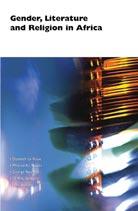Gender, Literature and Religion in Africa
Mots-clés :
Genre, Literature, Religion, CaireSynopsis
Studies in literature and religion are particularly vulnerable to accusations of subjectivity and bias, because by their very nature they deal with subjectivities and people’s perceptions of their own identity. In the past, on the basis of a patriarchal worldview, literature and religion were seen as value-free and neutral, and a gendered perspective was not taken into account. Today, an increasing amount of research is revealing the gendered fault-lines in works of fiction and in religious beliefs.
This volume showcases the diversity and depth of research that is currently taking place on the African continent in this field. The specifically African gendered experience is brought to the fore, through the critical discussion of proverbs, oral histories, resistance, and male dominance. Gender, Literature and Religion in Africa highlights continuing gender bias, often at the level of the sub-culture.
Chapitres
-
Prelim
-
Understanding Gender Through Genre: Oral Literature as a Vehicle for Gender Studies in East Africa
-
Imaginary Evidence: Finding the Non-Dit in Fiction
-
The Hold of Patriarchy: An Appraisal of the Ganda Proverb in Modern Gender Relations
-
The Nomiya Luo Church: A Gender Analysis of the Dynamics of an African Independent Church Among the Luo of Siaya District
-
Elechi Amadi's Women: Voices of Reason
Téléchargements
Références
Amadu, Malum and Gulla Kell, 1972, Amadu's bundle: Fulani tales of love and djinns, London: Heinemann Educational Books.
Abu-Haidar, Farida, 1999, 'Angst and Rebellion in the Fiction of Amin Zaoui', RAL, Fall.
Bâ, Mariama, 1981, So Long a Letter, Trans. Modupé Bodé-Thomas, Oxford: Heinemann.
Beyala, Calixthe, 1996, Les honneurs perdus, Paris: Albin Michel.
Brown, Lloyd, 1981, Women Writers in Black Africa, Connecticut: Greenwood Press.
De Beauvoir, Simone, 1974, The Second Sex, trans. H.M. Parshley. New York:Vintage Books.
De Vita, Alexis Brooks, 2000, Mythotypes: Signatures and Signs of African Diaspora and Black Goddesses, Westport: Greenwood.
Donovan, Josephine, ed., 1989, Feminist Literary Criticism: Explorations in Theory, Kentucky: The University Press of Kentucky.
Dubey, Mahdu, 1989, Black Women Novelists and the Nationalist Aesthetic,Bloomington: IUP.
Horne, Naana Bangiwa, 1986, 'African Womanhood: The Contrasting Perspectives of Flora Nwapa's Efuru and Elechi Amadi's The Concubine', in Carole Boyce Davies, and Anne Adams Graves, eds., Ngambika: Studies of Women in African Literature, New Jersey: African World Press Inc.
Jacobsen, Joyce, 1998, The Economics of Gender, Oxford: Blackwell.
Jaffer, Alison, 1983, Feminist Politics and Human Nature, Totowa, N.J.: Rowman & Allanheld.
Jameson, Frederic, 1974, Marxism and Form: Twentieth Century Dialectical Theories of Literature, Princeton: Princeton University Press.
Little, Kenneth, 1980, The Sociology of Urban Women's Image in African Literature, London: Macmillan.
Mainimo, Wirba Ibrahim, 2001, 'The Rise of the Cameroonian Feminist Novel', in Charles Nama, ed., Epasa Moto, Limbe: Presprint, 1.4, pp. 29-61.
Ngeyi, Stanley-Pierre, 1993, I See War, War, Real War everywhere, Ypsilanti: Mt. Zion Publishing Co.
Ngugi wa Thiong'o, 1967, A Grain of Wheat, London: HEB.
Nkosi, Lewis, 1981, Tasks And Masks: Themes and Styles of African Literature, Essex: Longman.
Nyamndi, George, 1996, 'The Cattle of Lake God: Symbolism and Meaning', in Charles Nama, ed., Epasa Moto, Limbe: Presprint, 1.3 pp. 228-232.
Oduyoye, Amba, 1979, 'The Asante Woman: Socialization Through Proverbs', in Alex Iwara, ed, African Notes, Ibadan: HEB, VIII.1, pp. 5-13.
Roscoe, Adrian, 1971, Mother is Gold: A Study in West African Literature, Cambridge: CUP.
Said, Edward, 1975, Beginnings: Intentions and Method, New York: Basic Books Inc., Sartre, Jean-Paul, 1956, Being and Nothingness, trans. Hazel E. Barnes, New York: Philosophical Library.
Stora, Benjamin, 1999, 'Women's Writings between Two Algerian Wars', RAL, Fall.
Tong, Rosemary, 1997, Feminist Thought, Chatham: Mackays.
Volet, Jean-Marie, 2001, 'Francophone Women Writing in 1998-99 and Beyond: A Literary Feast in a Violent World', RAL 32.4, pp. 189-199.
Zaoui, Amin, 1985, Salil al-Jasad (The Inordinate Passions of the Body), Damascus: Al-Wathba.






